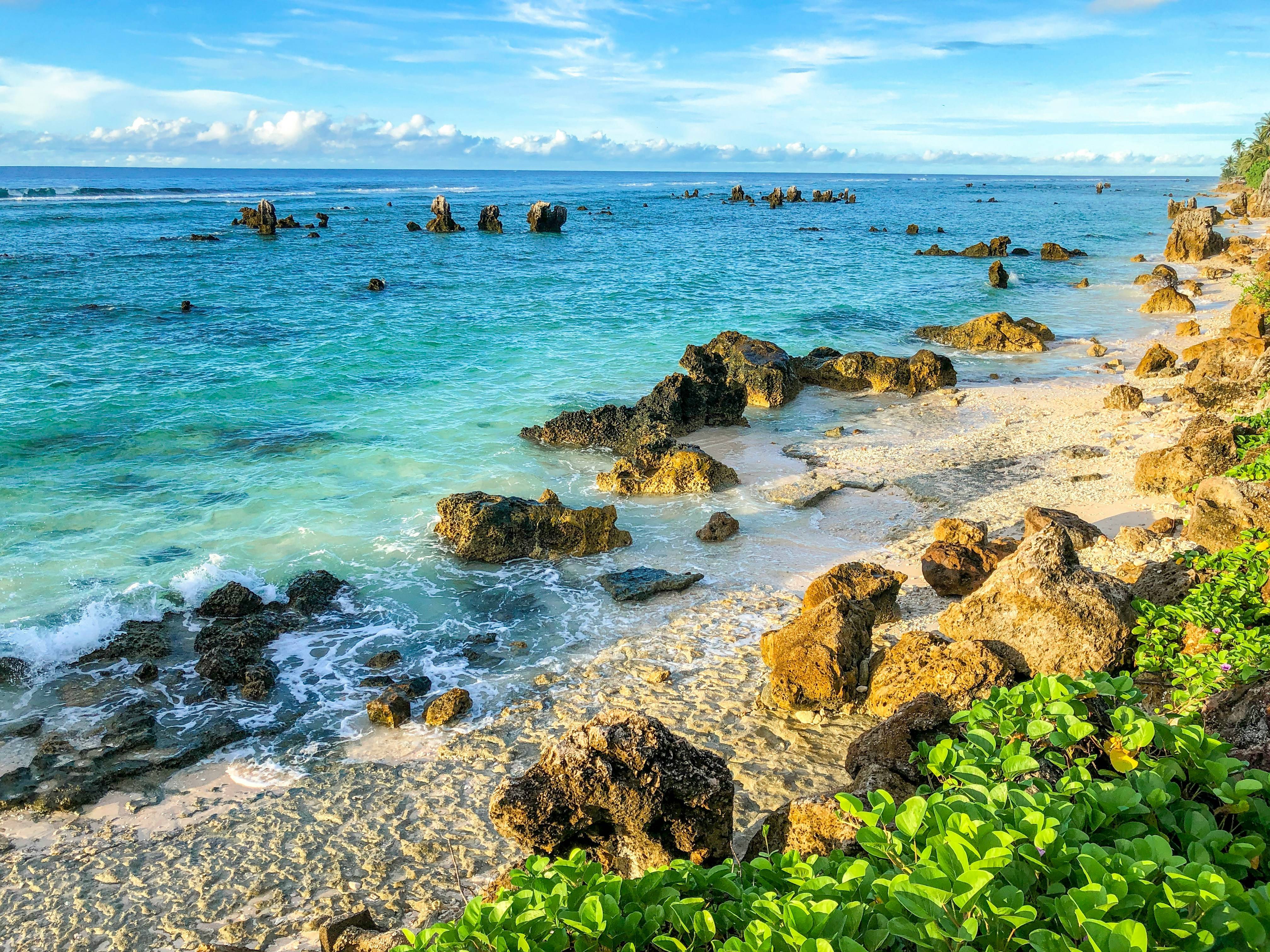
National SCP context and Connection to the Global Agenda: climate resilience and waste management
Nauru has demonstrated its commitment to achieving the Sustainable Development Goals through the review of its National Sustainable Development Strategy (NSDS) 2019 - 2030, which provides a roadmap for SDG implementation. The country ensures that the 2030 Agenda and the S.A.M.O.A Pathway are integrated into the NSDS. [1] Nauru launched its first Voluntary National Review in 2019, highlighting its efforts in SDG 12 to enhance social, infrastructure, and utility services. Nauru is a party to several conventions, including the Stockholm Convention, the Basel Convention, the Montreal Protocol, and the Rotterdam Convention, and continues to fulfill its obligations under these agreements. Additionally, Nauru was one of the first countries to ratify the Paris Climate Agreement in 2016, committing to reduce international carbon emissions. [2] Nauru has implemented a National Solid Waste Management Strategy 2017 - 2026 to strengthen its management of solid, hazardous, and e-waste, aiming to improve its capacity for waste management. [3] Nauru is developing an ambitious National Adaptation Plan.
Challenges
- Nauru, the world's smallest island country, consists solely of a single phosphate rock island. The country faces significant challenges due to its small size, remote location, and limited economic scope.2
- Building climate resilience adaptation plan for effectively migrating people living in vulnerable areas along the coastline to areas further inland, with needed resources
- Nauru's phosphate reserves, once its main income source, are now depleted. Decades of intensive mining have left 90% of central Nauru barren, requiring new revenue sources.2
- Food security is a significant issue as most food products are imported. There is little arable land as phosphate mining has left 90% of the land barren.2
- Climate change threatens Nauru’s fisheries revenue and worsens economic vulnerability. Rising sea levels endanger coastal communities and infrastructure, making relocation to higher ground a government priority.2
- The country struggles to establish and sustain effective e-waste management systems, as e-waste is often considered a low policy priority.[4]
Priority sectors
- Improving infrastructure includes fast-tracking land rehabilitation for domestic food production, developing ports to cut sea transport costs, upgrading drainage systems and roads for cheaper transportation, and enhancing water and sanitation for health and economic benefits.2
- Access to clean water is a key priority. Much of the groundwater has been contaminated due to mining, ineffective sewerage systems, and the dumping of commercial, burial, and household wastes.2
- Waste management is a critical sector requiring immediate attention. While the approval of the Littering Act establishes a policy framework for waste management in Nauru, there's a shortage of facilities and infrastructure for waste management.2
- Fisheries development is a key economic opportunity for Nauru. Despite limited inshore fishing areas, locally caught fish are essential to the Nauruan diet. While tuna harvests in Nauru’s waters are significant, most are captured by foreign industrial vessels.[5]
Opportunities
- Providing knowledge on developing eco-tourism to create new sources of employment.3
- Promoting increased domestic food production, such as fruit and vegetable farming, to improve nutritional standards.3
- Promoting waste management at the local and household levels, and encouraging behavior change, and adopting circular economy practices for e-waste management.
- Supporting food security by building a new organic waste recovery and composting facility to enhance agriculture and reduce waste.[6]
- Training in material footprint tracking is crucial for the country, where imports and fuel use for transport and recycling impact sustainability.2
[1] Government of Nauru. (2019). National Sustainable Development Strategy (NSDS) 2019 - 2030
[2] Government of Nauru. (2019). first Voluntary National Review in 2019
[3] Government of Nauru. (2019). National Solid Waste Management Strategy 2017 - 2026
[4] UN. (2024). The United Nations Common Country Analysis for the Micronesia Subregion 2024/25
[5] FAO. (n.d.). Nauru: Fishery and Aquaculture Country Profiles
[6] Government of Nauru. (2022). Nauru First NDC (Updated submission)


